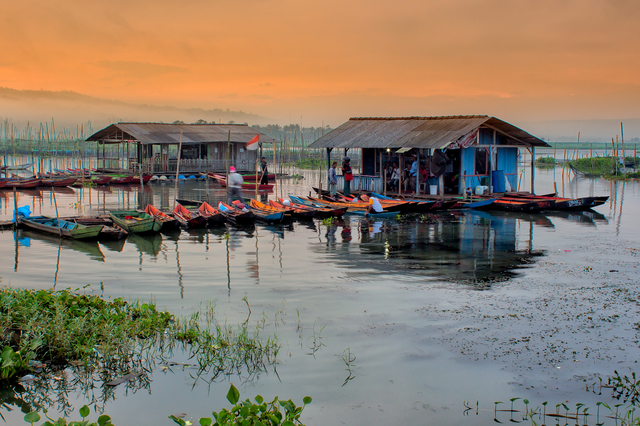Visitors to Rawa Pening, a lake in Central Java, Indonesia, describe their experience as “peaceful”, “calm” and “joyful.” But the tourist destination is threatened by an influx of invasive plants, which scientists warn may cause the lake’s waters to dry up within a few years. So Inasa Ori Sativa, a student from the from Bandung Institute of Tourism, came up with the innovative idea of using water hyacinths as a craft material for local artisans. Her proposal, submitted to the 2017 Forum on International Tourism and Environment (FITE) Business Solutions competition won first place among more than one hundred entries.
For the competition—sponsored by the George Washington University International Institute for Tourism Studies, the GW Debate and Literary Society, the Bandung Institute of Tourism, the Embassy of France to Indonesia and the Indonesian Ministry of Tourism—students were invited to submit proposals for business ideas in support of sustainable tourism. In addition to the students in Indonesia, George Washington University students also applied to the competition. Debate and Literary Society organizers Bailey Fischer-Columbo and Jeffery Lear along with GW competition winners Stephanie Westhelle and Sarah Marin, received all-expense-paid trips to attend the award ceremony in West Java, where they helped to prepare the Indonesian students for the event by coaching them on presentation and English language skills.
The GW students were joined by Director of Debate Paul Hayes and International Institute of Tourism Studies Executive Director Seleni Matus, who in her presentation underscored the importance of this particular year, which has been designated by the UN as the International Year of Sustainable Tourism for Development. She remarked: “When carefully managed, tourism has the transformative power to be a force for good—it can enrich lives, strengthen communities and help protect resources and hertiage.”
For the students, the opportunity to work with counterparts in Indonesia and witness first-hand their commitment to sustainability, was truly life-changing. As Westhelle observed, “In America, too often we take our education for granted. But it’s clear that the Indonesian students I met value the opportunities their universities provide in terms of shaping their careers. They were so proactive. Also, sustainability is well-integrated into the culture. The competition submissions were truly inspiring.”
This was the competition’s second year. According to Paul Hayes, the YouTube video submissions from last year where students proposed their ideas for sustainability now have more than 60,000 views. For more information, please visit the FITE website.


